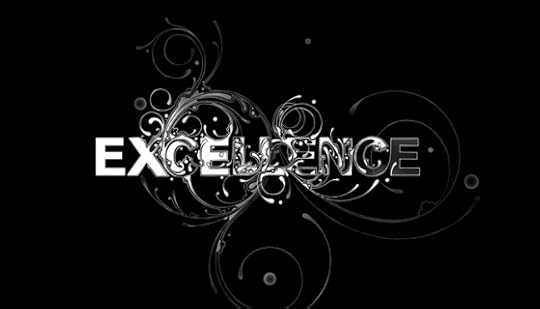Let’s Make Excellence Important Again
I’m noticing a cultural shift taking place, a shift where we’re moving from a society that accepts mediocrity to a society that embraces and even champions it. I can give you a laundry list of things I’m mediocre at and also plenty that I’m downright bad at, we all have that problem, but providing affirmation for our shortcomings is not the answer. This shift is still just a societal undercurrent, but we need to stop it before it becomes a pandemic and apathy becomes the next great American virtue.
It’s healthy to accept certain places of mediocrity and deficiency in our lives, if we didn’t our benchmark would be perfection and that’s not possible, nor should it be desired by anyone. However, if we affirm average or sub-par activity and performance, it removes the motivation to learn, grow, change, and better ourselves and that’s not only problematic, it’s a downright scary thought.
If you’re an organizational leader, why should you care about this? You’ve probably gotten to where you are because; you do have a higher level of drive and ambition than most. You need to care, because, whatever begins dominating in social culture will eventually bleed into your organization.
But, herein lies an opportunity. Not to mitigate the risk of this trend creeping into your organization, but to be a part of the solution. If you’re a leader, chances are you have some employees. Most of those employees come to work (or at least want to) for more than just a paycheck. It’s your job to figure out what that something is. Discover what it is relative to their career that gets them out of bed in the morning and you have the keys to unlocking their fullest potential. So how do you do it? It’s not hard.
Assess strengths and weaknesses – Not subjectively, use an assessment. There are a bunch of good ones out there to do this. Figure out what they’re great at and where they have room to improve. You have to objectively know what you’re working with before you can move forward.
Learn employee giftings and passions – There are assessments for this too. Does your financial assistant spend their weekends doing freelance creative design? If so, then he or she is probably in the wrong job. You need to know these things.
Create personalized development plans – Once you know what your people are good at and what they care about, you can build a plan for their professional development and personal enrichment that will not only make them more valuable employees, but more effective contributors to society, which makes them happier and amplifies your corporate social responsibility efforts.
This three step process does one very basic, yet essential function. It creates personal wins. Those personal wins can translate to organizational wins and societal wins. Your employees’ new found excellence becomes a benefit to all those they encounter. They’ll be more motivated, happier, and less likely to succumb to mediocrity as a way of life.




